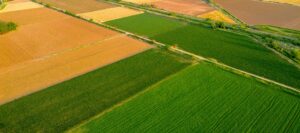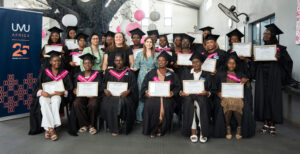Written by John Odendaal from Pannar Seed.
Agriculture is synonymous with food production and, in South Africa especially, employment creation. But the sector’s importance extends into the socio-economic realm as well.
In the last quarter of 2023, primary agriculture in South Africa employed around 920 000 people directly, i.e., on farms and in agro-processing facilities. If one works on the assumption that every salary supports at least five dependents, then farms and farmers underpin the wellbeing of a minimum of five million children, women and men in this country. Countless more benefit from the large up-and downstream value chains associated with agriculture.
But of course, agriculture’s impact goes much further than household income. Food security starts with the production of crops and livestock, and as no living being can do without food, the agricultural sector is a non-negotiable necessity for every person on earth.
As the global population keeps increasing, the pressure on farming rises. Not only must outputs increase, but agriculture faces growing competition for resources from residential, commercial and industrial development. Houses and roads need building, as do factories and other places of production and employment. As household incomes rise, people’s aspirations, wants and needs grow too.
Adding to the pressure on agriculture are the impacts of climate change. Even without extreme weather conditions coming into play, seasons are becoming hotter or colder, wetter or drier, wreaking havoc with yields from crops and cultivars that had been cultivated in specific areas using specific practices for many generations.
Against this backdrop, it is clear that farmers need our respect and support.
However, the importance of the agriculture sector extends beyond food production and into the socio-economic realm as well.
The most obvious impact relates to rural economic sustainability. Far from large urban areas as they mostly are located, farms and the people who own and work them exist in symbiosis with rural communities. Farms need the towns and villages in the platteland, and are a source of growth, income and prosperity for them. Farms are significant employers and significant customers of local businesses. Children from farms need schools to attend. Farm vehicles need fuel, parts and mechanics to maintain them. Without a vibrant and healthy farming community, the rate of urbanisation would increase, and the depopulation of the platteland will accelerate.
Pannar Seed
Pannar Seed firmly believes in the empowerment of rural communities through ongoing and highly personal support for farmers of all sizes. Our business model is built on combining cutting-edge developments in crop genetics with a thorough understanding of local conditions and a deep respect for farmers, be they in charge of mega commercial enterprises or smallholders making the best of five hectares. We value the trust of our farmers above all else.
We are committed to building lasting relationships with our customers, focusing on long-term success rather than short-term gains. Our ethos is to maintain personal yet professional connections. In good times, we share the benefits together; in challenging times, we are dedicated to providing the best support possible. Our committed sales team and expert agronomists partner with each grower, listening to their specific needs and challenges to understand how we can best serve them.
Most importantly in the context of rural socioeconomic sustainability, is the fact that we purposefully developed the capacity to support smaller farming enterprises. In South Africa, around 250 mega farmers extract superior commercial value from about 60% of the country’s farming hectares. Without these enterprises, large-scale food production, which is the cornerstone of South Africa’s food-secure status, would not be possible. But we also need the smaller landholdings to thrive. They play an incredibly important role in localised food security, the social fabric of communities and the economic sustainability of smaller centres of commerce, industrial activity and education and healthcare provision. Put bluntly: smaller farms keep people in rural areas and act as drivers of growth, service delivery and prosperity.
The Mbizana project
Over the past almost 10 years, we have seen this play out in the Mbizana area of the Eastern Cape – one of the focal points of Project Hope, a smallholder farmer development project in which Pannar Seed supports (among others) the Mbizana Rural Enterprise Development (RED) Hub of the Eastern Cape Rural Development Agency (ECRDA). We work here with more than 200 smallholder farmers, all planting maize on at least 5 hectares of land. The impetus for the project was a government-sponsored mill erected in the area that was severely underused due to insufficient crop yields. When our agronomists and support experts first got involved in 2016, the farmers were harvesting between 1 and 4 tons/hectare; the 2023 harvest yielded 6.5 tons/hectare on average. Earlier this year we introduced the concept of soil health and fertility improvement, and the farmers are currently being taught how to take, interpret and act on the results of soil samples. We believe that by improving soil health, yields can increase to around 8 tons/hectare. These days the mill produces enough mealie meal and animal feed to be sold to customers across the Eastern Cape.
The farmers, 50% of whom are women and 11% young people, have grown from eking out a living to becoming an important link in their area’s economic activity. In the process, household-level food security has improved significantly, and the income generated by the mill is unlocking opportunities that used to be unattainable, if not unimaginable.
Most importantly, these farmers have an enhanced sense of their own worth and agency – a personal asset that cannot be expressed in rands and cents.
The Mbizana project is a small yet powerful example of what can be achieved through focused and well-informed support for our country’s farmers. It is possible to help secure the wellbeing and sustainability of a country beyond food security.
***
Relevant Agribook pages include “Seeds and seedlings” and the ones linked to the agronomy section.
Photo by Christophe Maertens on Unsplash



